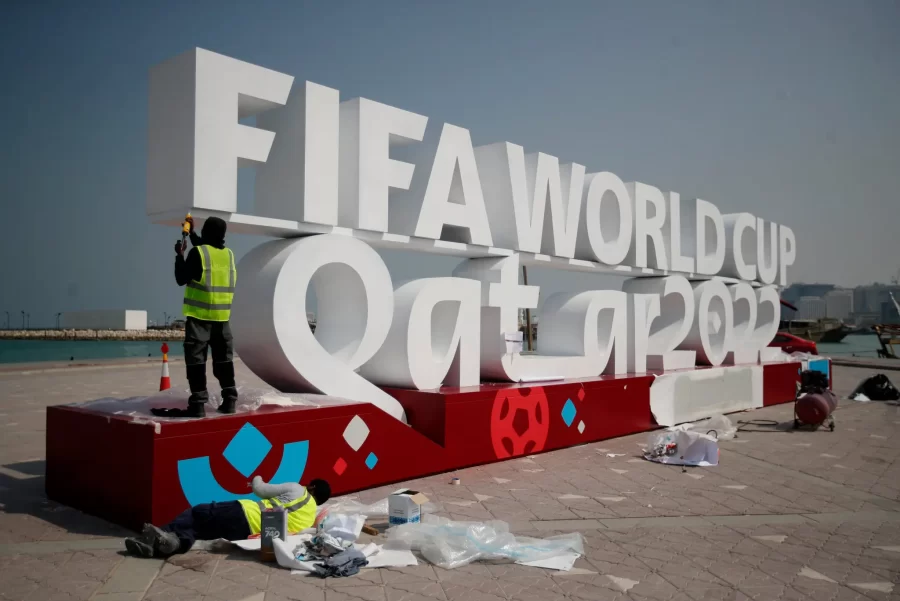The Qatar World Cup: A Matter of Legacy
Every four years, the world comes together in the summer for the World Cup, the largest sporting event in the world, during which 32 countries compete for the iconic gold-and-green trophy. This past World Cup was a bit different however, with the event taking place during the winter, from November 20th to December 18th. Despite this key difference, one consistency of the World Cup did not change: it had its fair share of controversies and scandals, the lack of which which would have been highly unusual, perhaps even worrying. From bribery to environmental concerns, LGBTQ+ rights to workers rights, the tournament’s reputation was ruined before it even began.
When Qatar and Russia won the bid for the 2018 and 2022 World Cups back in 2010, there was already strong suspicion; Russia was always going to be a controversial choice, given their reputation on the global stage, but Qatar? As the second smallest country in the Middle East by national population, and the third by land area, many questioned if it was suitable to host the tournament, which attracts several million spectators over its duration. Even more problematic, there were accusations of bribery from the United States, who had lost out on the 2022 spot, finishing behind Qatar in votes. The Department of Justice ended up accusing five individuals on FIFA’s board of accepting bribes, 3 of whom voted for Russia and the other 2 for Qatar.
At the time, FIFA, the ruling international body of football, had an executive committee, composed of 24 members, that voted for the hosts of the next two World Cups: a president, eight vice presidents representing each of the confederations (the continental football associations), and 15 members, elected by their respective national associations. In 2010, when the vote for the 2018 and 2022 editions was held, there were only 22 members; Tahitian vice president Reynald Temarii, representing the Oceania Football Confederation (OFC), and Nigerian member Amos Adamu were banned after investigative reporting by the Sunday Times revealed their corruption. Each member of the executive committee had a vote, and every round the country with the fewest votes was eliminated. Three South Americans, the Argentine vice president Julio Grondona, Brazilian member Ricardo Texiera, and Paraguayan member Nicolas Leoz took bribes to vote for Qatar. The Confederation of North, Central America and Caribbean Association Football (CONCACAF) vice president Jack Warner, from Trinidad and Tobago, accepted $5 million in exchange for a Russian vote, as did member Rafael Salguero, of Guatemala, for $1 million.
Being a country that practices Sharia, Arabic for the “correct path,” which is a set of laws on how to live an ethical life, Qatar’s stance on homosexuality was always going to be the subject of controversy, especially with the recent advancements in LGBTQ+ rights in the West. Qatar’s laws criminalize any sort of same-sex relations, with a maximum sentence of seven years; however, in Sharia courts, the act is punishable by death. Understandably, with the social justice movements taken up by the footballing world in the past few years, many football associations expressed their discontent with holding the ultimate event of the world’s game in a country with such persecution. In fact, just as the tournament kicked off, FIFA president Gianni Infantino encouraged all 32 teams to focus on football, implicitly suggesting that any political issues should be avoided. Pioneered by the Netherlands, the “One Love” armband, which advocated for LGBTQIA+ inclusion, was the subject of intense controversy after nations including Germany, England, and France expressed their will to wear it. After rumors circulated claiming that any captain sporting the clothing article would receive a yellow card, most countries decided to abandon the effort, unwilling to risk the suspension of their best players.
Unfortunately, there were some abuses that were barely mentioned in the media, specifically the lack of labor rights. Before the World Cup, the tragic treatment of migrant workers was much more acknowledged, but it seemed to fade away from the public sphere as the event neared, and apparently disappear as it took place. Qatar is undoubtedly a country of immigrants; foreign workers make up 88% of the population, according to a 2019 report by Priya DSouza Communications, a PR agency for Qatar. Despite their centrality to the country’s infrastructure, the treatment of immigrant workers is abysmal; the Guardian claims that 6,500 have perished since Qatar secured the rights to host the World Cup. Qatar vehemently denies this statistic, insisting that the true number – Hassan Al Thawadi, in an interview with Piers Morgan on November 30, suggests between 400 and 500 – is proportional to the population. In fairness, Qatar has reformed its Kafala system, which binds a migrant worker to his employer – in some cases preventing him from changing jobs or leaving the country. Despite changes, the games initially had an eerily unsettling aura; one could not help but think that those tens of thousands of fans were sitting on the graves of countless workers, in a way both lost to the ages and immortalized in the extravagant arenas that cost them their lives. But, of course, such sentiment washed away as the event chugged on, absorbed by the craze and hype of the games.
And then it ended, and the World Cup took on a very different feel, as if it had been refurbished in the memories of all those who had tuned in. Sportswashing (the use of sports to rebuild a reputation) had come to the rescue again, as it had for the likes of Roman Abramovich – with Chelsea – and Saudi Arabia – with Newcastle United. After the chaotic final, which some are calling the greatest in World Cup history, Messi’s victory will most likely usurp the discontent surrounding Qatar’s morals.
Ultimately, this World Cup will go down in history as one of the greatest, particularly because of the feats of Lionel Messi and the exciting final, not to mention the exhilarating penalty shootouts and iconic upsets. But it will also be yet another reminder that with greatness comes sacrifice, and in a capitalist world where the bounds of greatness are constantly expanded and pursued, there needs to be a reassessment of priorities, and a reevaluation of the cost of a human life, a commodity which seems to devalue with every passing year.

Paolo, a current senior, is looking forward to his third year writing for the Banner, this time as a section editor. Outside of the Banner, Paolo is the...


